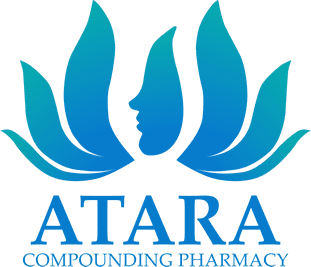Hormones are the chemical messengers the body uses to tell cells what to do and when to do it. There are a huge number of them involved in nearly every process from controlling hunger and temperature regulation, sleep, reproduction and development, metabolism and the immune response.
Mention hormones and mostly we think of the well-known male and female sex hormones, oestriol, oestradiol, progesterone and testosterone. These are the ones that head south during the latter parts of our lives and what we aim to replace in hormone replacement therapy during menopause and other conditions where these hormones get out of balance.
The traditional approach from doctors to manage symptoms such as hot flushes, dry skin, weight gain, night sweats, fatigue and decreased libido is to prescribe one-size-fits-all medications made by pharmaceutical companies. Some of these are ‘bio-identical’ hormones, that is, the exact same molecule as the body produces, and some are approved drugs that serve to mimic the effects of hormones. It is important to note the word bio-identical does not mean natural or even safe. All hormones are synthesized in a laboratory and are potent molecules that must be used with respect and caution by educated prescribers.
While this approach may suit many, it does not suit everyone.

Compounding hormones gives the opportunity to tailor the doses and even the delivery form to the specific needs of an individual. Compounded hormones may be prescribed in creams, capsules, gels, pessaries and troches. Troches are small lozenges that are placed into the mouth to dissolve slowly releasing the medicines. Some patients have allergies to ingredients of existing creams or gels or are un-able to swallow a tablet. Sometimes compounded hormones are prescribed when there is a shortage of the usual pharmaceutical company product.
Compounding pharmacies and pharmaceutical companies source their hormones from the same chemical laboratory sources but pharmaceutical companies manufacture to a set dosage and formula that has undergone significant testing and approval by the Therapeutic Goods Administration (TGA). Compounding pharmacies can make a much wider variety of products but each product cannot be individually tested. It is important to note that although these medications have a long history of use, compounded medications are not ‘approved’ in the same manner as traditional pharmaceuticals, as it would be impossible to test every formula and combination of hormones prescribed for each person.
Through understanding these differences, informed choices can be made to best suit the needs of the individual.

